On the eve of the NAMM Show it would be a good time to point out another completely different event recently held in Los Angeles. While the Woolsey Fire raged nearby the Ableton Loop Summit for Music Makers was held in Los Angeles.
As a user of Live since the pre-Green period, it's exciting to see what has happened with Ableton over the years. Although late to the DAW market they entered with a novel approach and have not strayed from the essential needs of application's growing legion of followers, even while adding new and innovative features. No small accomplishment that...
Although Ableton and their products were the focus of the event, there was a larger world focus on creativity and musical styles. The person most responsible for programming the event is Craig Shuftan, who is an author of three books on music and cultural history, including Hey! Nietzsche! Leave Them Kids Alone! (2009) and Entertain Us! The Rise and Fall of Alternative Rock in the 90s (2012).
In addition to programming Craig hosted his own How to Talk About Music: a practical guide.
Let's start with your background. Did you work for Ableton, and discover you had a talent for organizing events, or were you an event organizer that started working for Ableton?
I was neither. Before Ableton, I was a radio producer, a writer, and a public speaker. I've written three books about music and popular culture. I also teach similar topics, things to do with popular culture and media, the relationship between popular culture, trends and developments in history, and things like that.
When I was hired to work on Loop, it was because I had that experience. The program team needed some help producing what then was called the "open zone" of the program, the spaces for people to jam, and the interactive installations and sound environments, so that was where I started.
The Ableton Live community is growing fast, and Loop is an extension of that. Was this extension something Ableton envisioned?
When you talk about the community, you're right. The genesis of Loop really came from the understanding that Ableton had created a community. There were a lot of people that were making electronic music using things that Ableton designed and developed, and those people formed a community that existed online. Part of the idea of the Loop is to see what happens when this virtual community comes together in a physical space for a couple of days to talk about, listen to, and make music together.
If an artist is going to make a record these days, they're probably going to use one of the traditional DAWs during the recording and mixing process. Now there are new genres of music, best experienced in performance. Is a computer running Live creating this music or is the music creating Live?
Right, so it's a question about determinism. Is our music being shaped by the technology that we use or are we shaping the technology to make the kind of sounds that we want to make? Right, that is a good question. I think there're a lot of things in music that can be explained by changes in technology.
We're sitting here in East West Studios, and one of the first things I did after we'd come here to visit, was I went through the history section of their website, which is amazing, and I looked at all of the records that were made here and made myself a little playlist in chronological order of stuff that was produced here. And I would defy anybody to listen to that and say music isn't changed by technology. It absolutely is, and of course you can hear it.
Change happens all of the time. New instruments are developed. Synthesizers are developed, computer controllers, different kinds of microphones, fidelity, all of these things just in an hour of listening. On the other hand, there are things that can't be explained by that at all.
I have this wonderful book called Presets by Stefan Goldmann, which is about the sounds people like in electronic music and why we like electronic music, and particularly dealing with presets, there are certain sounds that are just magic. Even though they might have been superseded technically, they're still loved and everybody wants them. In one of the interviews there, one person talks about tweaking the EQ knob on the mixer while the drum track is going and taking the frequency and just tweaking it around, so it becomes an effect. He makes a really good point- that is was technically possible to do from about 1954 onwards and those things have existed on consoles for a long time, and nobody thought to do that for fun. Or maybe they did, but they didn't think it sounded very good.
Why all of the sudden in the mid-90s did that become a thing that people liked to hear? Sorry, the answer Is long, but what I'm saying is there are also a lot of things that can't be accounted for by changes in tech. It's more like language, in the sense that the letters that make up a word have no particular meaning and then we just put them in a sequence and say, "That means something" and after a while it does. Music is kind of the same. There are some things that are just arrived at by people working together who have developed an aesthetic or language or something like that, and in that case, I think the technology has to keep up with that. People want to hear things and will use or abuse the technology to get to that point.
Traditionally, the only way that musical performances could be recreated was by notation. Last night Juana Molina performed using loops, and there's no way you could reproduce that in any kind of traditional music notation. Where do you think it goes forward in terms of musicians being able to recreate compositions?
I guess we just don't need it. With a lot of that kind of music, for a long time now, notation has been kind of redundant. It's a combination of people who learn things by writing or simply by playing and reacting to each other in real time. Later, because those things are stored in some kind of sequence on the computer, whether on tape or some other format, those things converge and that's made notation as such redundant for lots of people. So I don't see that scores have disappeared as such, if you think of the view on your workstation as a score, or whatever it is for you.
Whatever you're working on, that is a kind of score. One of the people who is here at Loop this year, a composer named Lea Bertucci, who has put together a few books of graphic notations; that tradition that goes back to the '60s and '70s where people make graphic charts to explain how a piece of music is to be performed that doesn't use standard western notation, and rather specifies other things like pitch or duration or whatever it is using colors and charts and shapes. I don't think scores are going away. I think there're always going to be people who are interested in working like that and people in casual ways who like to map out or chart out what they do. I still see people working with paper and writing things.
Certainly there was no way to record audio in the days of Bach and Beethoven. I was thinking more how people replicate a performance of someone else's piece.
That's a big topic for Loop, something that you'll see a lot in our program this year. We've tried to explore it in different ways. I think for a lot of people who start out making music in Ableton Live or any other way to make electronic music at home, they run into this problem pretty quickly. You can compose and control and arrange and mix to the Nth degree in the digital world, and then you make something great and people like it and you have some followers on SoundCloud and then someone says, "Hey, you want to play a show?" and you're like, "Sure..." I've heard that story from people a lot, who are like, "I don't know how to perform this." In other words, "I don't know how to reproduce the thing that I've produced." I think it's kind of hard whatever you're using.
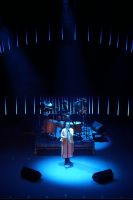
Lafawndah
performs
I was helping an artist called Lafawndah set up for her performance. The reason we invited her is she's an artist who has been turning her live show inside out in the past year as a response to this problem. She and her collaborator made a lot of really exciting and physical electronic music which she found she was performing on stage and feeling nothing because all of the stuff was preproduced and even though there might be people hitting the pads or whatever it is, it doesn't feel live. So she went to all of this trouble of collecting this huge percussion rig and hiring a percussionist and totally redesigning her stage show so that now it's a super physical percussion heavy show with electronic effects and singing.
I guess it's different for everybody. That's kind of a reproduction of a recording, which is also transformative, right, dealing with process. It's not a faithful reproduction because she's not interested in that, but she needed to reproduce it for a stage and it felt right for her.
Improvisation has become a critical part again, and that's exciting. The audience doesn't expect to hear a reproduction from the record. They come to see an artist who has a particular sound and groove, and they want to hear that.
I guess you've hit the nail on the head. When I say that performance is a subject that we're exploring, we've explored it in all kinds of different ways. It's true, there are people who are great at improvising, or if they're not, they love the idea of putting people together in a group who can do that. That's really exciting. Also, there're some genres of music where not only do you not need to do that, but the audience wouldn't want it. Like you mentioned pop music, for example, and I would say it's probably true of some genres of electronic music too. People are not coming along to see live improvisation on stage. They want the sound to be amazing. They want to feel like they are part of something. They don't really care what the person is doing back there. They just want it to feel and sound and look great. And that's a kind of reproduction too.
This was my first experience with Loop. How was it different from Berlin?
This event is a little smaller. I don't remember how many people we had at Funkhaus last year but it was a lot. It really was just to do with the venue. Funkhaus was an East German radio broadcasting center from the communist times and it's enormous. It's a building that you could just never fill, so we could always add more events and more people. This year, in Los Angeles we're working with several venues that are spread out between one another, we decided to keep it a little bit smaller.
I noticed there were a lot of people in the audience that weren't from LA...
Yea, I get that feeling too. LA is a very multicultural city, and I'm a tourist here, so I wouldn't want to make any assumptions. We'll know better when the information comes in about how many return visitors came from Berlin. Part of the challenge for this year was knowing that we're communicating with a different audience and different expectations and different cultural norms in the way that music is quite different in some cultures. We came here to do something and put on a good event, but also to learn, and I think we have.
You must be happy...
Yea, we're really happy.
One of the huge differences between American music and music in Europe is certainly just the space that you have. A lot of bands in the US practice in garages, where there's space to put a drummer and amps. Whereas in Europe people have to compress their spaces.
There's a reason why the garage band was born in American and not in Berlin, right? We don't have garages. (laughs).
How do you choose who performs and presents?
That's a good question. One of the reasons we started doing Loop was we were aware that by making musical instruments, we had acquired (as part of that imaginary community that I was talking about before), a lot of artists, who we were in touch with and interested in working with us. Part of the idea of Loop is to see what happens when you put those people in a room together. In other words, music makers who were using Ableton Live at all different levels, whether they were super famous or just starting out in the garage as you put it—to bring those people together so they can exchange ideas and learn from each other.
There are people in the Loop program who we've had a relationship with for a while, who are interested in what Ableton does and we're interested in what they do. But there are also new people who we've met because part of the idea of Loop is to scout the landscape of what's happening in music all across the world and find ways to bring that to the attention of our community. In other words, create an environment or physical space where people can see interesting, forward thinking, experimental, and fun music that is being produced all around the world.
So, to answer the question, we have a curation team that reaches out to all of the people we know who are interested in music at lots of different levels and try to make sure that we're representing a diverse spectrum of what music is like across the world. We listen to lots of music and watch lots of things and talk about what we want Loop to be like and what kind of experience we want people to have. We look for narrative strands within the program and try to connect things together that have a relationship with one another. We also look for contrast—things that are totally different that might be cool and surprising if you put them next to each other.
That is an important thing, isn't it?
Yeah, music culture nowadays is like a rainforest with all these genres and sub-genres and communities of music makers. And even within a genre or sub-genre, there are all of these variations that are local or regional or whatever, and they have different meanings.
Did you make any plans to adapt the Loop experience to Los Angeles?
We wanted to create a mixture of two things. One, to provide a showcase for some of the interesting musical developments going on in Los Angeles and the United States generally, but also bring a little bit of what we do in Berlin. We've had an office here for a number of years, so we relied on the advice and information from our colleagues who do work in the city and know its music culture—we're lucky that we have that.
When I first got here in February, my mind was exploding from all of the new stimulus. I had my ideas about what Los Angeles was like, and I'd read a lot of books about its musical history and I'd thought about it, but when I got here, a lot of those things were sort of turned upside down.
It's ironic that the events were at EastWest, which was formerly Sunset Recording, home of the Wrecking Crew. Most pop records before the 60's were made in New York by classically trained musicians. Starting in the 60's productions from LA, which were looser with elements like twangy guitars, became popular. And the New York traditionalists said, "They're wrecking music." So the LA collective decided to own it, and called themselves the "Wrecking Crew."
There's a lot of tradition of that in culture, isn't there? There was Cubism, and that was an insult. There were critics who hated Picasso, who said the paintings just look like little cubes stuck to each other and the artists were like "Yea, Cubism...we're going to own that."
Picasso's vision of a jam
photo Museum of Modern Art/Licensed by SCALA/Art Resource, NY
Craig Shuftan's 'Alternative Nation' was included in the Hamburger Bahnhof Museum for Contemporary Art's Black Mountain College: An Interdisciplinary Experiment (2014). As a radio producer, he's created hundreds of music documentaries, programs, sketches and sounds for Australia's national youth broadcaster, triple j, won an Australian Recording Industry Award (ARIA) for his production work on the 2010 album The Blow Parade, and more recently, created the music and sound design for BBC Radio 4's The Walking Tour with Joseph Morpurgo (2017) and Sam Simmons is Not a People Person (2016).
Craig has taught cultural history and theories of communication at the Hochschule Macromedia (Berlin and Hamburg), The Node Center for Curatorial Studies (Berlin), FH Kufstein, the University of Groningen (NL), The Academy for Pop Culture (NL), and presented the popular course How to Have Better Conversations at The School of Life Berlin from 2016 – 2018.
Schuftan is currently leading the Loop Program Team at Ableton and makes oddball disco music with his band, Ducks., whose third album, Do It Again, was released in December 2018.

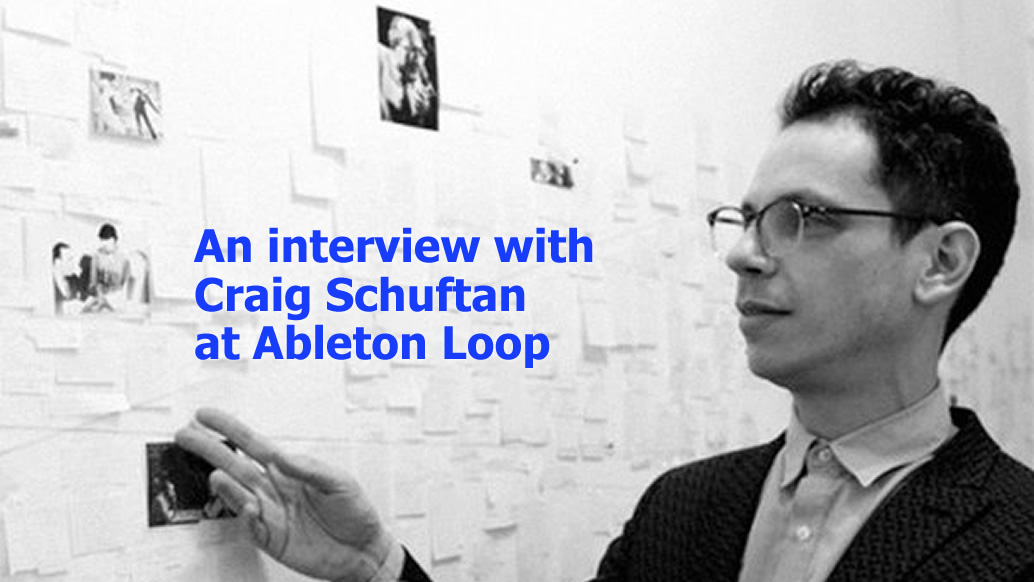

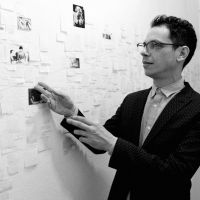
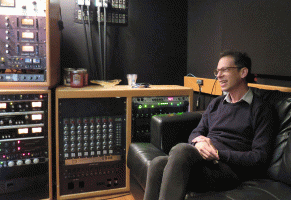
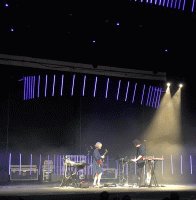
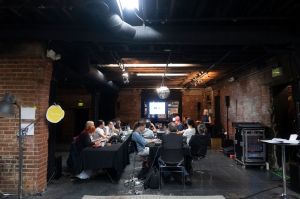
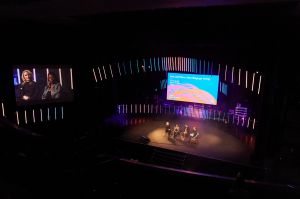
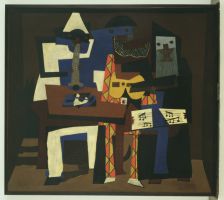
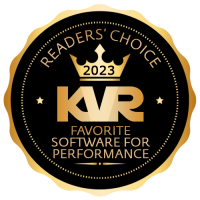

 Other Related News
Other Related News









